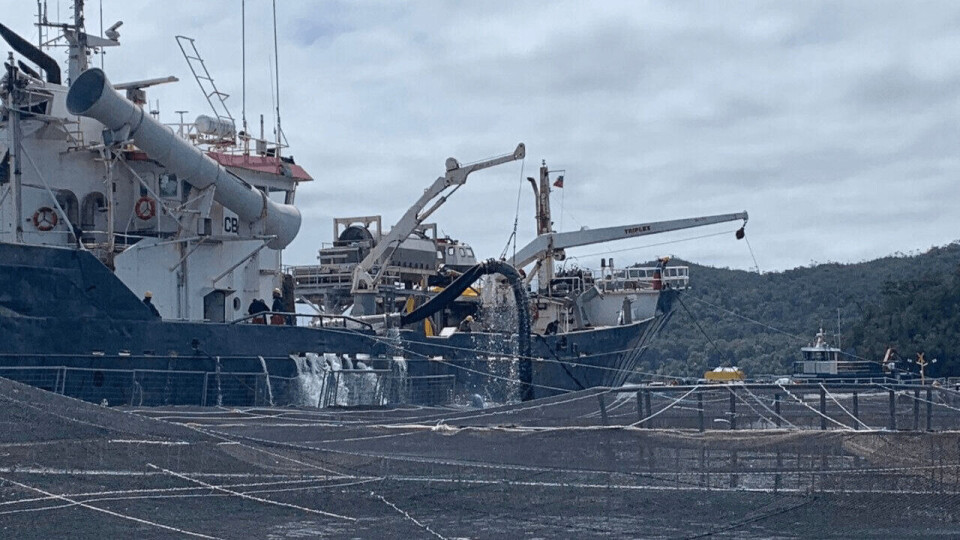
Chilean farmers stay on algae alert after losses
Salmon farmers in the Aysén region of Chile are remaining on the alert for a fresh occurrence of an algal bloom and low dissolved oxygen levels that killed 3,350 tonnes of fish at the beginning of this month.
Blumar, Salmones Austral, Camanchaca, and AquaChile all lost fish due to the bloom of Pseudochattonella microalgae, while Mowi activated its contingency plan for mass mortality associated with low oxygen.
All the dead fish have been removed from the water, many without obvious signs of decomposition. These have been transported in two deep-sea trawlers to the BioBío region for conversion into fishmeal and fish oil.
Fishmeal and oil
Iván Oyarzún, Biobío regional director of state aquaculture agency Sernapesca, said the trawlers Erika and Duqueco “arrived in Talcahuano a few days ago and carried out the unloading process of 1,353.98 tonnes at the Landes plant in complete normality”.
He added that the dead fish were driven in airtight trucks to the processing plant for use as a raw material for fishmeal or oil. The fish and wastewater are treated with chemicals and heat, negating the requirement to send any to landfills.
Sernapesca said it will maintain surveillance in Aysén through satellite imagery, remote monitoring systems, information exchange and face-to-face, remaining alert to climate changes that could modify the current environmental condition.
Developing situation
One of the affected salmon farmers, AquaChile, told Fish Farming Expert’s Chilean sister site, Salmonexpert.cl: “This is a developing situation, and to date it can be said that a Pseudochatonella harmful algae bloom has been seen in recent days in the Puerto Aguirre area (Aysén region).
“The authorities are informed, and the company has activated the contingency and mitigation plans provided for these situations. Algal blooms are natural phenomena and represent an operational risk at this time of year, so we will continue to monitor the situation.”























































